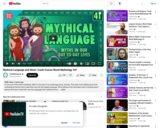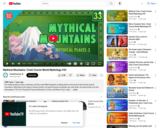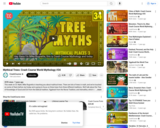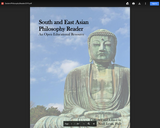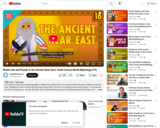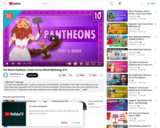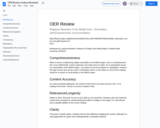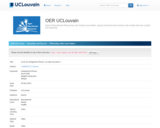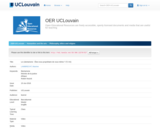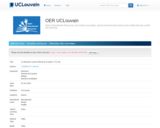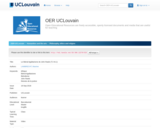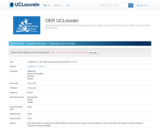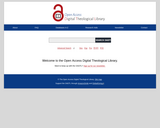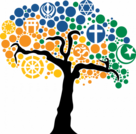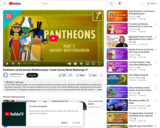An Open Access Anthology of Greek and Roman Myth
Short Description:
Mythoi Koinoi: An Online, Open-Access Anthology of Greek and Roman Myth provides undergraduate university students with free, easy access to primary source texts and images for Greek and Roman mythology. Mythoi Koinoi means "Mythology for the People" in Ancient Greek, and it is intended to give everyone who engages with it access to the writings and artistic creations of the ancient Greeks and Romans.
Long Description:
Mythoi Koinoi: An Online, Open-Access Anthology of Greek and Roman Myth began with the observation that many of the texts that we study in our Greek and Roman mythology classes have translations that are available online, either in the public domain or under open access copyright, though many of them are archaic, unreadable, and therefore inaccessible to modern students. Accessibility, then, has been the guiding principle for the book. We set out to update these open access translations, providing clear introductions that situate each text according to time, place, and genre, and organizing them into thematic chapters. We have adapted all translations that are more than forty years old for readability, while maintaining the integrity of the text and its faithfulness to the original languages.
Additionally, while there are thousands of primary source images related to Ancient Greek and Roman mythology available online, they are generally uncontextualized and scattered across multiple platforms, including museum databases, open access media collections, and popular webpages. We collected and organized these images, situating them within their respective chapters and providing necessary context for identification and interpretation.
The anthology contains more than 80 primary source texts from 35 authors, along with hyperlinks to online translations of many more. It has more than 600 high-resolution images of artwork from ancient Greece and Rome. In crafting the book, we have followed best practices for Universal Design for Learning. All images come with captions, descriptions and alternate text, for those that are unable to view them. There are over 500 glossary entries that are accessible either through links within each of the primary texts, or through the glossary section at the back of the book.
The book contains 43 chapters, organized into 7 parts, starting from the myths of creation and destruction, and going through the aftermath of the Trojan War. The sixth chapter focuses specifically on mythology unique to Ancient Rome, and the seventh chapter focuses on the mythology and archaeology of cities and spaces. We have also included mythology from Mesopotamia and the Levant in two chapters, “Aphrodite” and “Flood Myths.” We hope that these chapters will give instructors and students the opportunity to explore some of the ways in which ancient Greek and Roman myth is connected to earlier mythology from ancient West Asia.
Word Count: 386906
(Note: This resource's metadata has been created automatically by reformatting and/or combining the information that the author initially provided as part of a bulk import process.)
